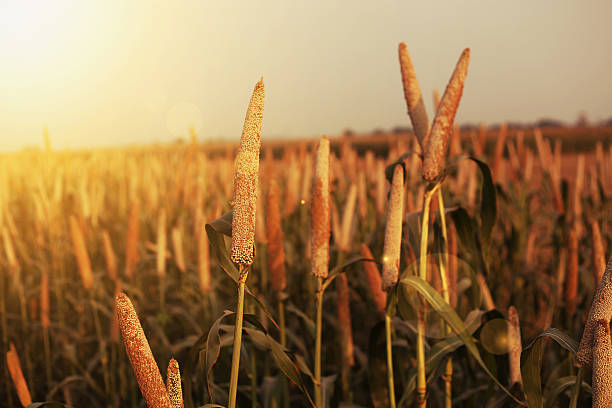Boosting initiatives around millet value chain is one of the most effective ways to address agricultural challenges. Millets are a group of grasses mainly found in the arid and semi-arid regions. They produce small seeded grains and are often cultivated as cereals. They include Pearl millet (Pennisetum glaucum), Finger millet (Eleusine coracana), Proso millet (Panicum miliaceum) and Foxtail millet (Setaria italica).
Millets play a vital role as a food security crop especially in semi-arid lands of Kenya. They are widely cultivated as human food or animal feed. The grain is used for making floor for the preparation of porridge, flat bread or chapatti. The flour is also used for making wine or beer. The grain is a feed for livestock and chicken. The straw is used for forage and in some areas as brooms, building material and fire wood. Millet is fast becoming a popular baby food as the grains are rich in calcium with a pleasant flavour. The grains are similar in nutrient composition to maize but richer in protein and fibre. In recognition of millets nutrition value and frequent maize crop failures, the Government of Kenya is putting more emphasis on production of millet to mitigate food and nutritional security.
At KELS we empower millet farmers by providing training which equips them with relevant attitude, knowledge and skill in millet production techniques
- To refresh and enhance farmer trainer’s with knowledge and new technologies along the millets value chain including variety selection, soil nutrient management, crop management, crop protection, value addition and marketing
- To provide farmer trainers with skills in participatory techniques for effective facilitation of adult learning processes
- To enhance the development of inclusive stakeholder partnership for sustainable upscaling of millets technologies

